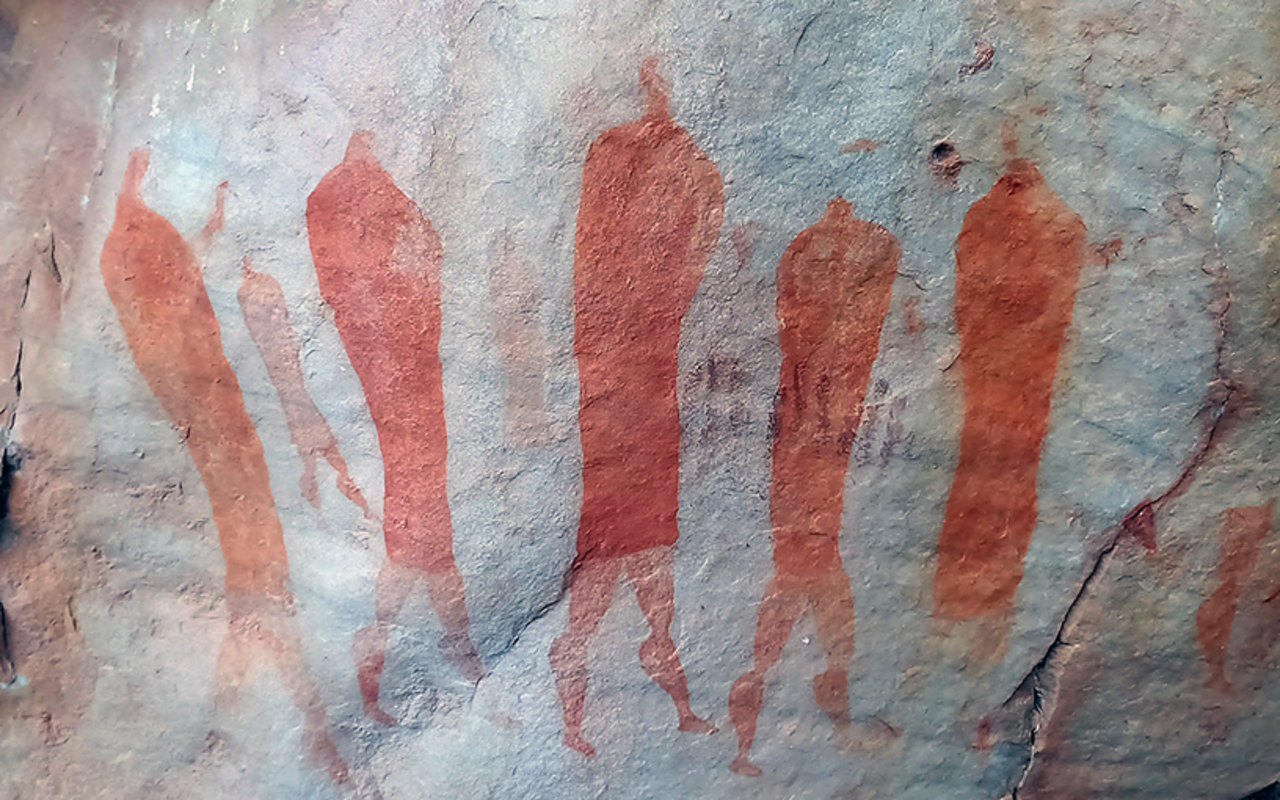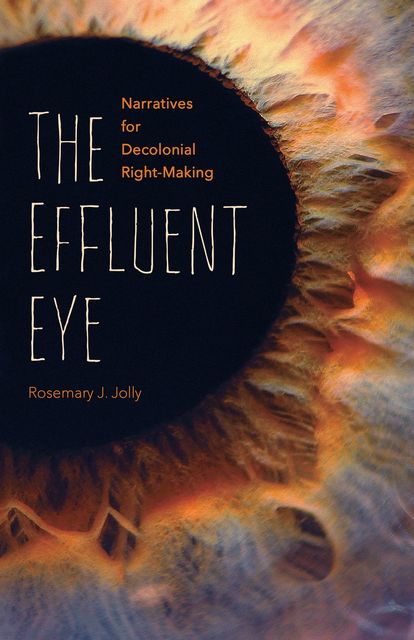The Effluent Eye
Narratives for Decolonial Right-Making
In The Effluent Eye, Rosemary J. Jolly argues for the decolonization of human rights, attributing their failure not simply to state and institutional malfeasance but to the very concept of human rights as anthropocentric—and, therefore, fatally shortsighted. In an engaging mix of literary and cultural criticism, Indigenous and Black critique, and substantive forays into the medical humanities, Jolly proposes right-making in the demise of human rights.
Using what she calls an “effluent eye,” Jolly draws on “Fifth Wave” structural public health to confront the concept of human rights—one of the most powerful and widely entrenched liberal ideas. She builds on Indigenous sovereignty work from authors such as Robin Wall Kimmerer, Leanne Betasamosake Simpson, and Mark Rifkin as well as the littoral development in Black studies from Christine Sharpe, Saidiya Hartman, and Tiffany Lethabo King to engage decolonial thinking on a range of urgent topics such as pandemic history and grief; gender-based violence and sexual assault; and the connections between colonial capitalism and substance abuse, the Anthropocene, and climate change.
Combining witnessed experience with an array of decolonial texts, Jolly argues for an effluent form of reading that begins with the understanding that the granting of “rights” to individuals is meaningless in a world compromised by pollution, poverty, and successive pandemics.
Background image of San rock art in the Cederberg by Zaian on Wikimedia Commons

Table of Contents
Metadata
- rightsThis book is freely available in an open access edition thanks to TOME (Toward an Open Monograph Ecosystem)—a collaboration of the Association of American Universities, the Association of University Presses, and the Association of Research Libraries—and the generous support of the Pennsylvania State University. Learn more at the TOME website: openmonographs.org.
Portions of the Preface, chapter 2, and chapter 5 were originally published as “Pandemic Crises: The Anthropocene as Pathogenic Cycle,” Interdisciplinary Studies in Literature and Environment 27, no. 4 (2020): 809–22. Portions of the Introduction and chapter 1 are adapted from “Effluence, ‘Waste,’ and African Humanism: Extra-Anthropocentric Being and Human Rightness,” Social Dynamics 44, no. 1 (2018): 158–78; copyright Taylor & Francis: https://www.tandfonline.com/doi/abs/10.1080/02533952.2018.1449723. Portions of the Introduction, chapter 2, chapter 3, and chapter 5 are adapted from “Decolonising ‘Man,’ Resituating Pandemic: An Intervention in the Pathogenesis of Colonial Capitalism,” Medical Humanities 48, no. 2 (2022): 221–29; https://doi.org/10.1136/medhum-2021-012267.
Excerpts from Antjie Krog’s “Rondeau in Vier Diele” and M. NourbeSe Philip’s “Zong #1” are reprinted with permission of the authors.
Copyright 2023 by Rosemary J. Jolly
The Effluent Eye: Narratives for Decolonial Right-Making is licensed under a Creative Commons Attribution-NonCommercial 4.0 International License (CC BY-NC 4.0): creativecommons.org/licenses/by-nc/4.0/
- isbn978-1-4529-7073-8
- publisherUniversity of Minnesota Press
- publisher placeMinneapolis, MN
- restrictionsPlease see the Creative Commons website for details about the restrictions associated with the CC BY-NC- 4.0 license.
- rights holderRosemary J. Jolly
- doi


